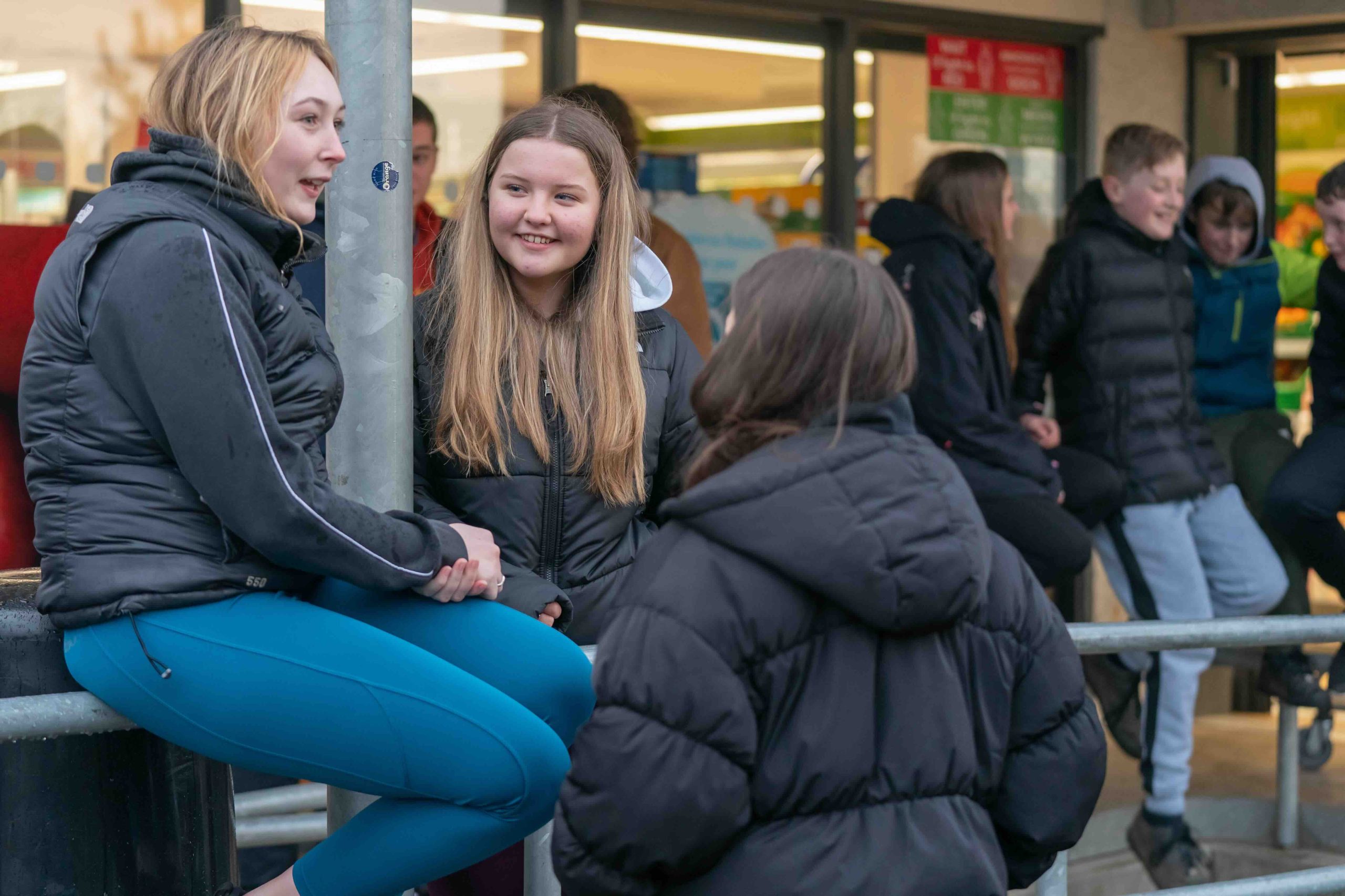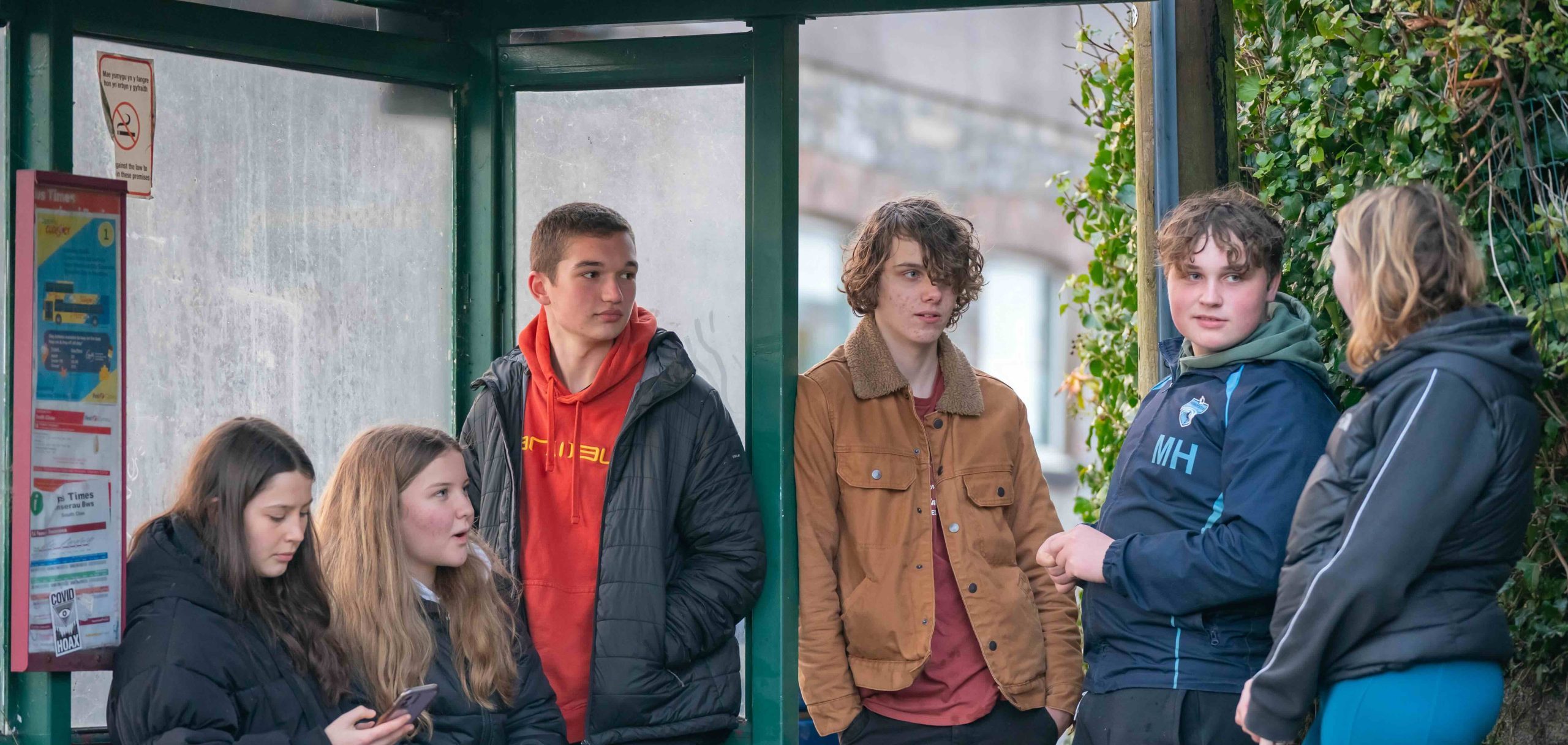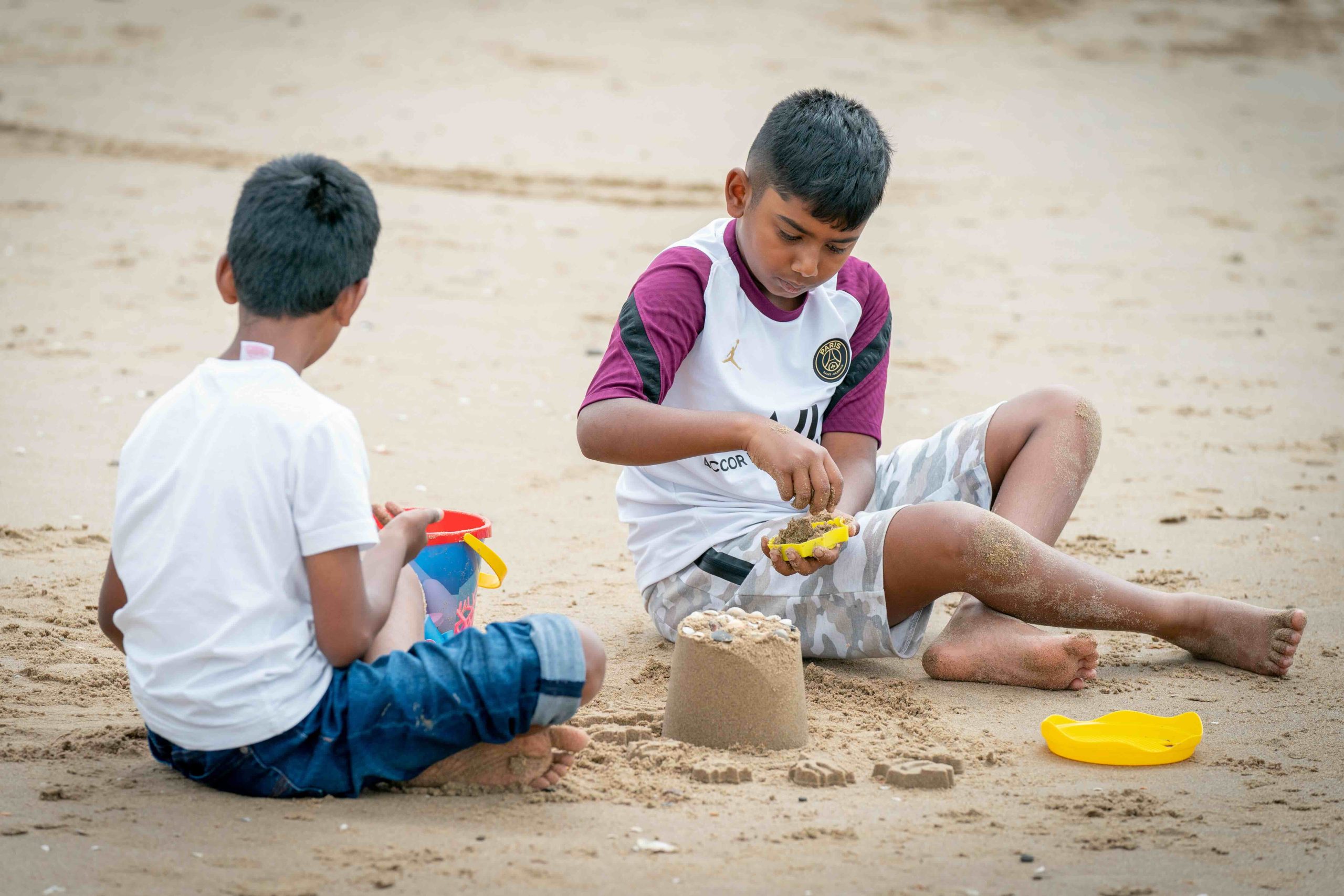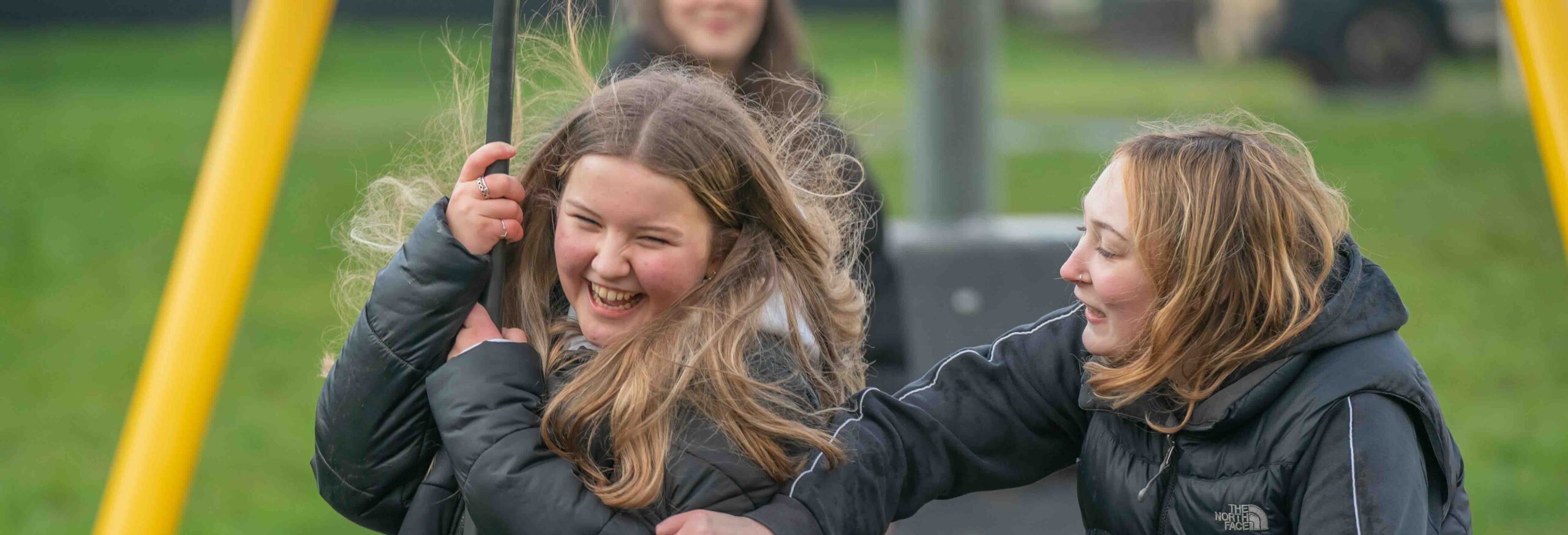All about play
Spaces to hang out
Teenagers are great at using different spaces to socialise. They often find places that weren’t intended for hanging out but that seem to suit their needs. This might be at home, but teenagers often make great use of public spaces like streets, town centres, squares, corners, parks, outside shops and other gathering places.
Other places teens may choose, if available, are:
- youth provision and clubs
- adventure playgrounds
- skateparks
- activities in the community supported by youth workers.
Whether in youth provision or public spaces, teenagers are often looking for:
- privacy – places that are far enough from adult eyes to not be disturbed or judged
- safety – places they feel they can relax without being harassed or intimidated
- novelty – places where there are fun things do, like playing in a river or climbing a bridge
- viewpoints – places where they can see what’s going on and people coming and going
- freedom – to be themselves and behave as they choose
- things they need – seating, shelter, lighting, warmth, wifi.
Most of all, teenagers are drawn to places where there are other people to hang out or interact with. They may move around from place to place and connect and interact with other groups. When they are doing this, they are gaining social experience, skills and understanding.
Having places to hang about and socialise can give teenagers a sense of belonging. Feeling welcome can support their social and emotional wellbeing.
The impact of teenagers hanging about
Teenagers can bring vibrancy and life to boring and under-used spaces, for example when they are:
- skateboarding
- showing off fashions
- playing music
- playing informal games.
Teenagers often have fewer choices than adults and young children of where to spend time and may feel unwelcome in some places.
This might be to do with:
- actual disturbances, littering, nuisance from noise or blocking pavements
- people feeling intimidated by groups of teenagers
- people simply not being very tolerant of them.
Teenagers may also feel intimidated by other teenagers, adults or the environment.
Things to talk about
Teenagers have as much right as everyone else to spend time in public places. We should all expect people to treat each other with respect and consideration whether they are children, teenagers or adults.
It might be helpful have some conversations with your teenager about:
- how language and behaviour might affect other people
- who else might want to use a space at the same time
- how to be considerate of each other
- what options they have if they feel unsafe or uncomfortable
- how they might talk to other teenagers.
On our sticking up for teenagers page, you can find suggestions of how to stick up for teenagers in the community and on social media. We also have a page about helping teenagers stick up for themselves.
Keep in touch
When your teenage child starts to spend time hanging out you might want to think about ways to keep in touch. This can reassure you and your teenager. Lots of teenagers have phones which can help with keeping in touch. You can share locations between phones or on apps.
Here are some things to consider:
- Remember that where their phone is, might not be where they actually are!
- Teenagers need to know they and others have a right to privacy – we don’t want them growing up thinking partners or others have a right to know where they are all the time.
- If you become reliant on checking locations on smartphones it can make you nervous when you can’t get in touch. There can be simple reasons such as there being no signal or their device not having power.
You and your teenage child can talk through and agree key things together, such as:
- arranging to let you know if they are going to be late home
- how they can keep in touch if they are going to be out for a long time, for example, they could check in with a text or call at set times
- arranging that you will to be at a certain place at a certain time to check in with them
- making sure they know that if they are in trouble or unsafe, you would rather they got in touch.













